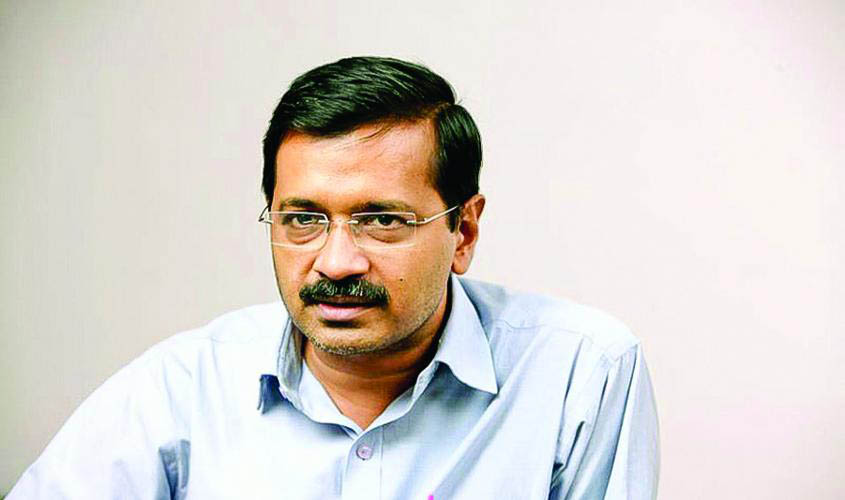 The outcome of the Bawana Assembly byelection in North Delhi went virtually unnoticed in the cacophony of the Dera Sacha Sauda chief Gurmeet Ram Rahim Singh’s arrest and subsequent violence both in Haryana and Punjab. However, the significance of the electoral verdict lies in the fact that those who had written off the Aam Aadmi Party (AAP) following the results of the Assembly polls in Punjab and Goa, as well as the municipal corporation elections in Delhi, have been proved inaccurate.
The outcome of the Bawana Assembly byelection in North Delhi went virtually unnoticed in the cacophony of the Dera Sacha Sauda chief Gurmeet Ram Rahim Singh’s arrest and subsequent violence both in Haryana and Punjab. However, the significance of the electoral verdict lies in the fact that those who had written off the Aam Aadmi Party (AAP) following the results of the Assembly polls in Punjab and Goa, as well as the municipal corporation elections in Delhi, have been proved inaccurate.
The AAP scored a convincing victory over the BJP in the prestigious contest triggered by the resignation of the sitting AAP MLA, Ved Prakash, who quit his seat to join the BJP. In fact, the confrontation appeared to be a precursor of how politics could unfold in the national capital during the next round of polls—both Parliament and Assembly.
In other words, the byelection has further confirmed that the two main players in Delhi were going to be the AAP and the BJP. This is definitely bad news for the Congress, which performed reasonably well while trailing behind the saffron brigade primarily because its nominee, Surinder Kumar, a three-time MLA, put up a stiff fight. The Congress received votes due to its candidate and so had little to do with the party’s contribution. The Delhi Congress president, Ajay Maken attempted to analyse the polls in terms of percentages, while maintaining that the Congress vote share had increased. However, in politics it is the winner who stands on the podium and other permutations, semantics and explanations are simply just poor consolations.
The result has certainly brought the BJP back on the ground, forcing its leaders to re-think and reassess their strength. The massive municipal corporation triumph was primarily due to Prime Minister Narendra Modi’s popularity, which facilitated the party to sweep the Uttar Pradesh elections shortly prior to the civic polls. The party had won despite its dismal performance in the three municipal bodies, where it had been in power for a decade, and by all accounts, the win was purely linked to the Prime Minister and had next to nothing to do with the local netas.
The loss also had a sobering influence on AAP workers, who previously had been flying sky-high, pursuing ambitions of becoming an alternative to the BJP in many of the states where the Congress had been strong and was now conclusively, though gradually, losing to the BJP. Modi’s dream of making India Congress-free seemed to be becoming a reality till Captain Amarinder Singh, in March, halted the BJP juggernaut in Punjab.
The AAP volunteers and workers were down in the dumps, but one single victory in Delhi has absolutely resuscitated the party. It is a rejuvenated cadre that the BJP would have to contend with in the future, and it could happen before this year comes to an end, provided Arvind Kejriwal decides to throw the dice in Gujarat; with of course the assistance of the disgruntled Patel community, which in the past has always backed the BJP, but is at present peeved with the saffron leadership.
It is evident that post the municipal drubbing, Kejriwal appears to have realised that a continuous confrontationist approach was not going to help his cause. Therefore, the most appropriate course would be to maintain a low-profile, thereby consolidating his position, while discreetly introspecting with the rank and file. Kejriwal, thereby, has been focusing on strategy and future tactics, thus leaving day to day functioning to Manish Sisodia, his deputy, who, in fact, has acquitted himself decidedly well.
Visibly unable to have clearly comprehended the astute and insightful politician, which the Delhi Chief Minister has turned out to be, his detractors had prematurely drafted his political obituary. Some claimed that he had surrendered to the BJP and its leadership, resulting in a ceasefire between the two warring parties. As a matter of fact, the AAP stopped training its guns on the BJP leaders, who too, halted their attacks.
The temporary truce may end soon as the Gujarat elections draw closer, and Kejriwal, who is a subject of both contempt and ridicule in the Congress and the BJP, may on the political centre stage make a comeback with a bang. Obviously, he is chastened by the political developments from the time he emerged on the national scene and would therefore currently devise his plans with a more realistic approach. The methods would differ from place to place, and to remain relevant he would highlight issues that are of interest to the locals as well as dominating communities.
The supreme irony is that the BJP and AAP share a common objective—that of decimating the Congress. While the BJP is working on completely replacing the Congress as the primary party in all states, the AAP is concentrating on taking over its base, thereby rendering it totally ineffective. It has succeeded in doing so in Delhi and realises that it could take advantage of a weakened Congress and BJP in Gujarat as well. After Modi has come to the Centre, BJP’s dominance in his own state has been diminishing with his successors unable to emulate his governance mantra.
Bawana is a shot in the arm for Kejriwal and has once again made him politically apposite even if the victory was achieved in a single Assembly segment. It is the break he needed. Between us.

